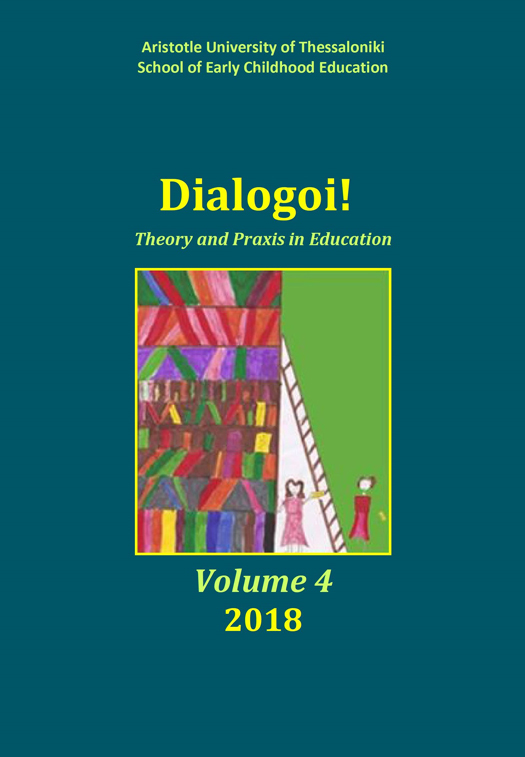Perceptions of teachers, bilingual students and parents with immigrant background toward bilingualism: Methodological issues and re-examination of research data

Abstract
In this paper we attempt, through the presentation of the ethnographic research: "Issues of bilingualism in preschool and early primary school children: Social and educational dimensions" (Gkaintartzi, 2012), to discuss methodological issues and review its research data in the light of subsequent studies. We focus on the issue of the relationship of the researcher with the participants, her involvement in the research field and her subjectivity, as approached in the ethnographic research of the doctoral dissertation. We conclude with a review and critical discussion of its research data, which relate to the language views of teachers, bilingual students and immigrant parents, in view of later research data.
Article Details
- How to Cite
-
Γκαϊνταρτζή Α. (2018). Perceptions of teachers, bilingual students and parents with immigrant background toward bilingualism: Methodological issues and re-examination of research data. Dialogoi! Theory and Praxis in Education, 4, 83–94. https://doi.org/10.12681/dial.15366
- Issue
- Vol. 4 (2018)
- Section
- Scientific columns

This work is licensed under a Creative Commons Attribution-NonCommercial-ShareAlike 4.0 International License.
Authors who publish with this journal agree to the following terms:
- Authors retain copyright and grant the journal right of first publication with the work simultaneously licensed under a Creative Commons Attribution Non-Commercial License that allows others to share the work with an acknowledgement of the work's authorship and initial publication in this journal.
- Authors are able to enter into separate, additional contractual arrangements for the non-exclusive distribution of the journal's published version of the work (e.g. post it to an institutional repository or publish it in a book), with an acknowledgement of its initial publication in this journal.
- Authors are permitted and encouraged to post their work online (preferably in institutional repositories or on their website) prior to and during the submission process, as it can lead to productive exchanges, as well as earlier and greater citation of published work (See The Effect of Open Access).


